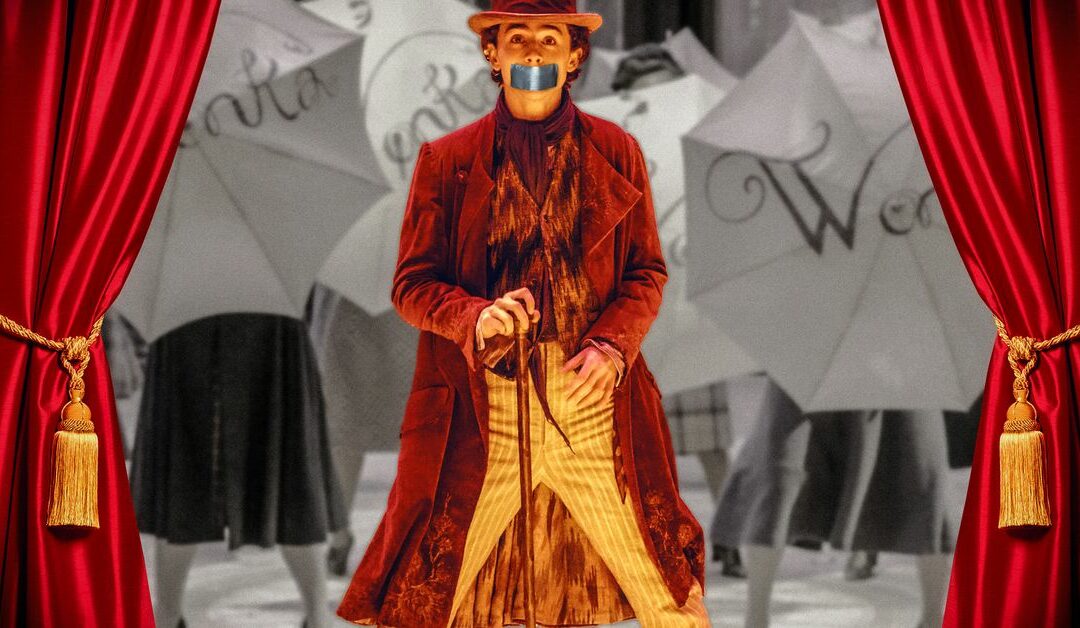Since the advent of sound to motion pictures with “The Jazz Singer” in 1927, musicals have been among the defining genres of cinema, alongside westerns and war films.
However, in recent months, some Hollywood companies have been accused of playing peek-a-boo with their films, in which characters spontaneously break into song.
Do a quick Google search, and you’ll discover references to audiences being surprised that Paramount’s new “Mean Girls” picture, based on the Broadway smash that was adapted from the 2004 Tina Fey-penned Lindsay Lohan comedy of the same name, had a slew of musical numbers.
Critics may ask why the promos for Warner Bros.’s “Wonka,” starring Timothée Chalamet as Roald Dahl’s eccentric chocolatier, and the same studio’s “The Color Purple,” with excellent soprano Fantasia Barrino, appeared coy about the fact that they were full-fledged musicals.
This observation may be a little overstated.
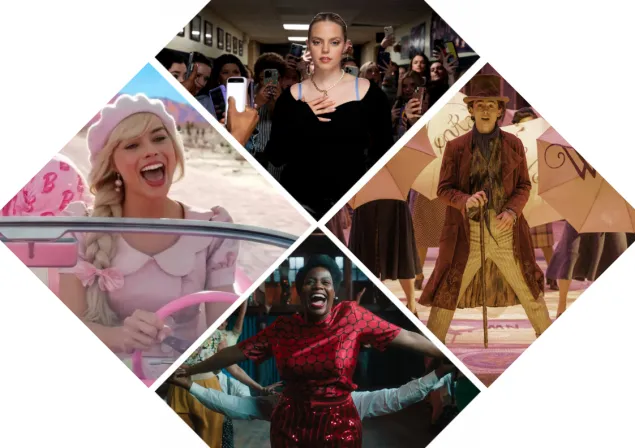
Marketing efforts are multidimensional and target the widest potential audience, which is no easy task in today’s highly competitive theatrical picture industry. Audience members who watched the numerous promotional materials and cast appearances for either “Wonka” or “The Color Purple” would have been given hints as to what was to come.
The official trailer for “Wonka” featured flashes of dancing, including high-stepping chorus lines, as well as Hugh Grant’s Oompa Loompa teasing a well-known number. In a November television commercial, Chalamet performs “Pure Imagination.” Beyond that, the 1971 film “Willy Wonka & the Chocolate Factory” was jam-packed with songs, so the prequel’s song-and-dance element should not surprise anyone.
READ MORE: Hollywood Editor Detained For Child Cruelty Following Viral Video
Warner’s official “The Color Purple” advertisements included dancing sequences and Barrino singing “I’m Here” from the Tony-winning musical. However, the studio did not overemphasize the film’s musical aspect.
Why not advertise musicals more explicitly? Is the perception that they are too niche? Too old-fashioned? Do studios dread repeating past flops like “In the Heights,” “Cats,” and “Dear Evan Hansen”? Perhaps a little of everything?
The reasoning is more complex than it appears. Broadway lovers may scream foul, but each picture is unique and must be marketed properly. According to studio insiders, the early marketing strategy for “Wonka,” for example, was to focus on the plot and characters while also introducing fans to Chalamet’s portrayal of the top-hatted inventor. Given the widespread cultural appreciation for Gene Wilder’s famous performance, this would be a difficult undertaking.
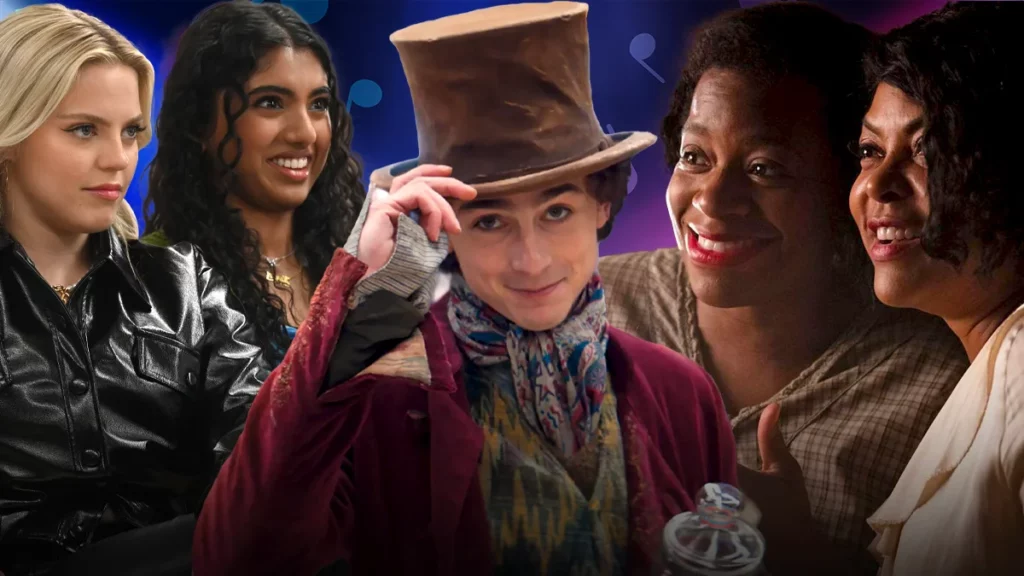
According to unnamed marketing experts, one cause could be that the original cinema versions of “The Color Purple” and “Mean Girls” were not musicals, as opposed to Broadway-born productions such as “Les Misérables” or “Mamma Mia!,” which were obviously and successfully marketed as such.
To attract the widest audience, studios typically market movies by offering viewers what they already know they enjoy. You promote “Mean Girls” by selling “Mean Girls,” highlighting the cutting humour and oversized characters.
READ MORE: A $3 Million Home In Hollywood Is Sold By Robert Pattinson. Check It Out Inside!
On the other hand, Disney’s recent blockbuster adaptation of “The Little Mermaid” (clearly a musical) had no reservations about including Halle Bailey singing “Part of Your World” in its ads. And why would that be? People go crazy over that music. Is there any chance that Universal Pictures, while marketing Jon M. Chu’s upcoming “Wicked” adaption, will avoid the high notes of “Defying Gravity” in its trailer and television spots? I doubt it.
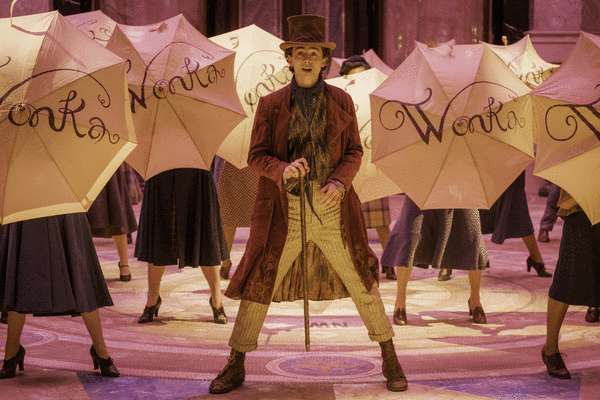
When studios go to that far, it might backfire. In 2007, Hollywood faced a big backlash after moviegoers were perplexed by the on-screen singing in “Sweeney Todd: The Demon Barber of Fleet Street,” which was an adaptation of a Stephen Sondheim and Hugh Wheeler musical rather than your “normal” Tim Burton film.
Are Hollywood’s marketing strategies working?
The latest “Mean Girls” opened with a strong $33.6 million over the four-day Martin Luther King Jr. weekend in the United States and Canada before falling 59% in its second weekend, implying that Paramount may have been prudent to avoid promoting its musicality. “The Color Purple” had a promising start, grossing $18 million on Christmas Day by attracting primarily Black viewers, but it quickly faded to a domestic total of $59.7 million.
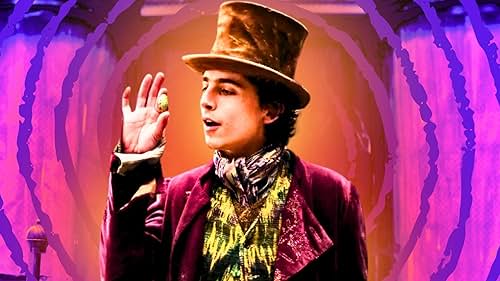
However, “Wonka” is an undeniable success. The film grossed $534 million worldwide, including $188 million in the United States and Canada, after debuting to $39 million domestically in mid-December. That is an incredible run, demonstrating that word-of-mouth remained unaffected by the fact that there were so many songs. Perhaps suppressing the musicality was unneeded in this case, even if it is difficult to perceive how it hurt.
READ MORE: After Hollywood Strikes, L.A. City Council Decides To Speed Up Film And Television Production
Marketing is not everything. Sometimes the film itself must carry the day, and positive word is a tremendous force, particularly for family-friendly films.
When it comes to original movie musicals, box office experts love to point out the colossal success of 2017’s “The Greatest Showman,” which looked like an absolute failure when it debuted at $8.8 million. It grossed a staggering $174 million domestically and $439 million globally. 20th Century Fox may have had a difficult time marketing the film for its opening weekend, but moviegoers discovered and embraced it nevertheless. Of course, that was a unique incident, and the film industry has evolved substantially since then.
The musical genre will be put to the test again this year with Todd Phillips’ supervillain sequel, “Joker: Folie à Deux,” starring Lady Gaga as Harley Quinn and Joaquin Phoenix as the insane clown Arthur Fleck. Will DC fans accept a dark, gritty musical, even if it’s adorned with wicked clown makeup? If Warner Bros. and Phillips want to be extra adventurous, they’ll include a show-stopper in the teaser trailer.
Radiant and America Nu, offering to elevate your entertainment game! Movies, TV series, exclusive interviews, music, and more—download now on various devices, including iPhones, Androids, smart TVs, Apple TV, Fire Stick, and more.



